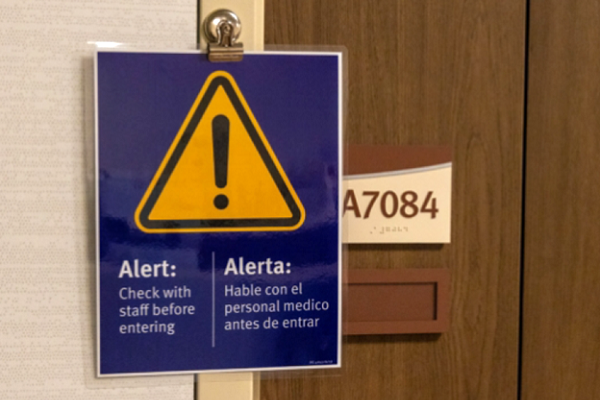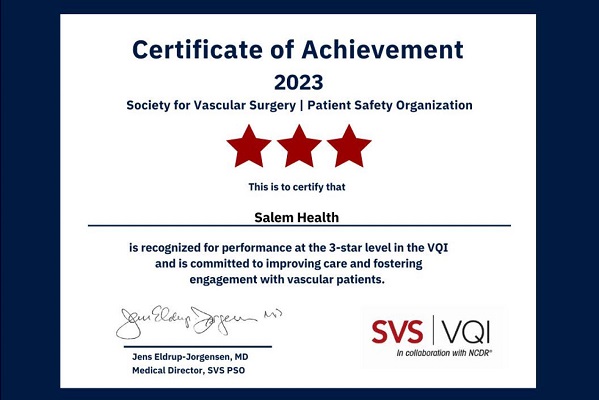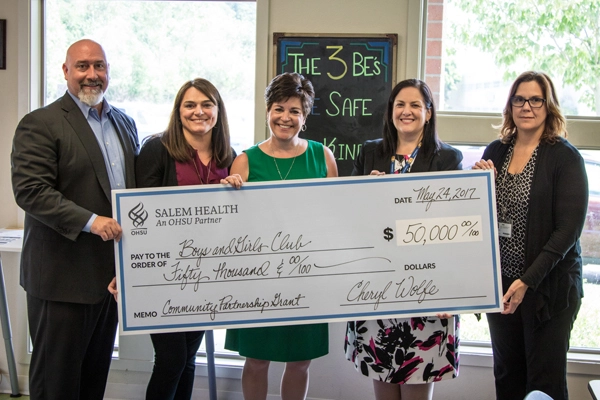
Update: Negotiations fail, Salem Health can no longer accept Regence insurance

PointClickCare certification 'a game changer' for Salem Health Laboratories

Workplace violence decreased by 21% thanks to education, action and collaboration

New Breast Care Center opens on the Salem Hospital campus

Salem Health earns 3 stars in vascular quality initiative registry participation program

Salem Health launches summer internship program

Join us June 11 and 12 for 'Dementia, Alzheimer’s Disease and Your Family'

Salem Health Laboratories named Lab of the Year 2024

New clinic location opens on the West Valley Hospital campus in Dallas

West Valley Hospital expansion brings 25 hospital beds to mid-Willamette valley

Bear with us! Unwinding COVID restrictions

Masking update: When do you need to wear one?

New nurse graduates celebrated at Salem Health on April 5

Salem Health’s first baby of the New Year arrives just minutes after midnight

Salem Health Community Investment Grant awards for 2022-23 fiscal year

Baby formula shortage: Tips from Salem Health physicians

Salem Hospital Emergency Department plaza entrance now open

Salem Health Community Investment Grant 2022-2023 application to open on April 4

Partnerships for healthier communities

Salem Health grants $50,000 to Boys and Girls Club program to fight obesity